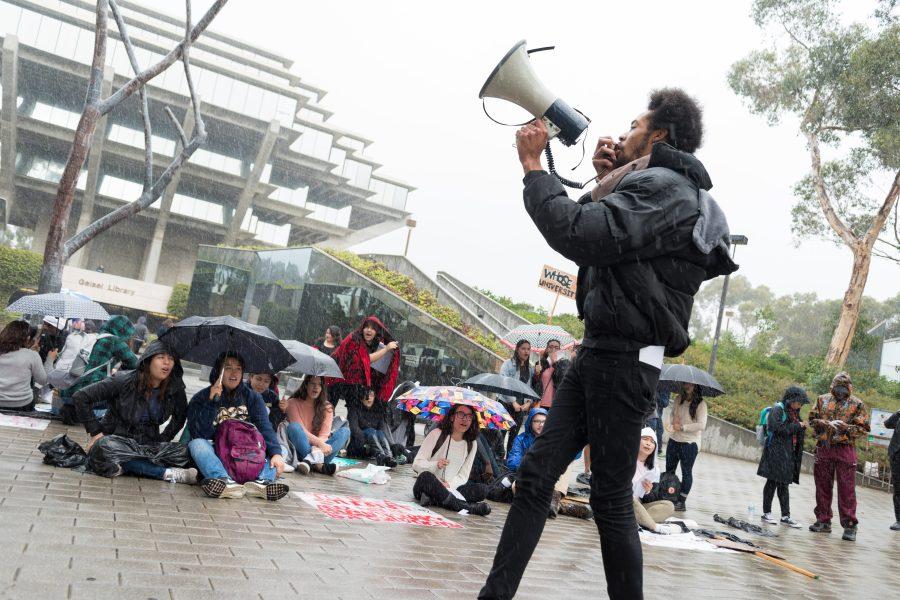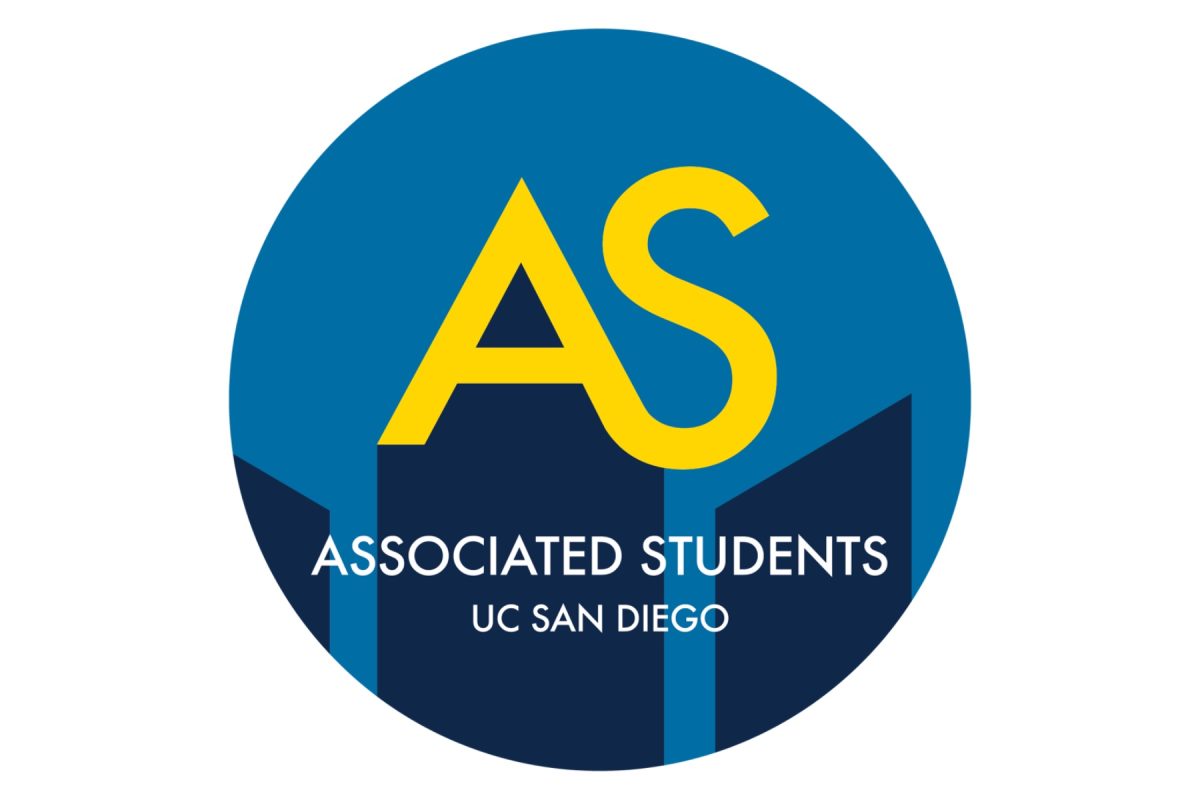Dozens of students from across campus gathered at the Silent Tree on Monday where they chanted and expressed their concerns in response to a tuition hike requested by the UC Regents and the CSU Board of Trustees.
The Students Affirmative Action Committee organized the protest against the tuition hike, which, if approved this January, would raise tuition for UC students by approximately $300 for the 2017–18 academic year, an increase “roughly in line with 2.5 to 3.1 percent,” according to the University of California’s executive vice president and chief financial officer, Nathan Brostrom. The increase would be covered by financial aid for 65 percent of students.
Student protestors chanted phrases including, “Whose university? Our university,” “Two, four, six, eight, can’t afford to graduate,” and “Ain’t no power like the power of the people, ‘cause the power of the people don’t stop.”
Following the chants, attendees were given the opportunity to speak in front of protesters as well as those who gathered to watch.
Marshall College junior Dellanira Alcauter was one of the organizers of the demonstration, and spoke to the UCSD Guardian about what compelled her and her colleagues to stage a protest.
“We’re out here to show our disagreement with the tuition hikes and to demand that the UC Regents roll back tuition, not just freeze it, so that they go back to the original plan where the UC was once tuition free, where we did not have to pay to attend this university, where it was still somewhat a public university,” Alcauter said. “We want to have the UC Regents realize that they need to stop raising tuition.”
Turning her focus to the effects of high tuition, Alcauter explained that with high costs, the ability for students to take care of themselves is hindered, causing them to make a choice between paying for higher education or caring for their health.
“Surveys have continuously shown that students across the UC are homeless: Students are living in their cars, students are living in apartments with 6-7 people,” Alcauter said. “When someone has to decide whether or not they’re going to pay their tuition or pay for their next meal or pay for their rent or pay for their books, we need to start questioning why we have tuition at this cost to begin with.”
Two years ago, the Regents and Gov. Jerry Brown agreed to freeze tuition for in-state students for a minimum of two years. This means the UC system and and California State University are allowed to increase tuition by the rate of inflation starting in 2017.
According to A.S. Council Vice President of External Affairs Lauren Roberts, although the increase is smaller than the hike proposed two years ago, the Regents’ approach to proposing the increase is also different.
“I think this hike will be different in that the regents will try to make it palatable for students,” Roberts told the Guardian. “Two years ago, a 25 percent increase over five years was proposed, and obviously students were scared and outraged. I think this year they will try to pass a smaller percentage to divide students.”
She also added that the timeline of this tuition hike is different than that of two years ago, and that efforts to stop it will differ because of this.
“The last hike proposal and this one are on different timelines so it’s hard to speculate [how the efforts will differ],” Roberts said. “The last hike was proposed to be voted on by November at the regents meeting, and students are easy to mobilize in fall quarter. This year the UC has just proposed it less than a week ago and will vote in January when students are hard to mobilize and are relaxed and out of the loop from vacation, which is why this conversation is happening now.”
Claire Doan, the media relations officer at the UC Office of the President, provided “context” when asked about the student response to the newly proposed tuition hike.
“Tuition at the University of California has remained flat for the past six years, despite the decline in state support,” Doan said in an email. “The state has gone from covering 72% of the cost of educating a California student in 2000 to 41% last year.”
Doan also explained how the increase in the price of tuition will benefit rather than disadvantage UC students.
“The modest increase will allow the University to maintain the quality of education by increasing financial aid support, lowering the student-faculty ratio, increasing course offerings and enhancing student support services,” said Doan.
Last week, Alcauter and other UCSD student drove to UCSF to attend the UC Regents meeting, hoping to have an opportunity to voice their concerns with the individuals who represent them.
“The kicked us out of their meeting,” Alcauter said. “Chancellor Khosla was there and he walked out. We want to have a conversation. We’re trying to have this conversation and they need to listen to us if that’s what they’re there to do to begin with: to represent the students.”
Alcauter told the Guardian that organizers have the same goals they had two years ago.
“[Today’s protest is] a continuation of what happened two years ago,” Alcauter said. ”I don’t think it’s a much different conversation, it’s maybe different students doing the organizing and different folks comes out to support, but we’re hoping the rest of the campus comes out to help make change happen.”
According to Roberts, protests are expected to continue until UC Regents vote on whether or not they want to raise tuition at their meeting this January.
Reporting by Tina Butoiu and Matthew Zamudio
Updated:
12/5/16 12:01 p.m.: Information and response from UCOP added.








